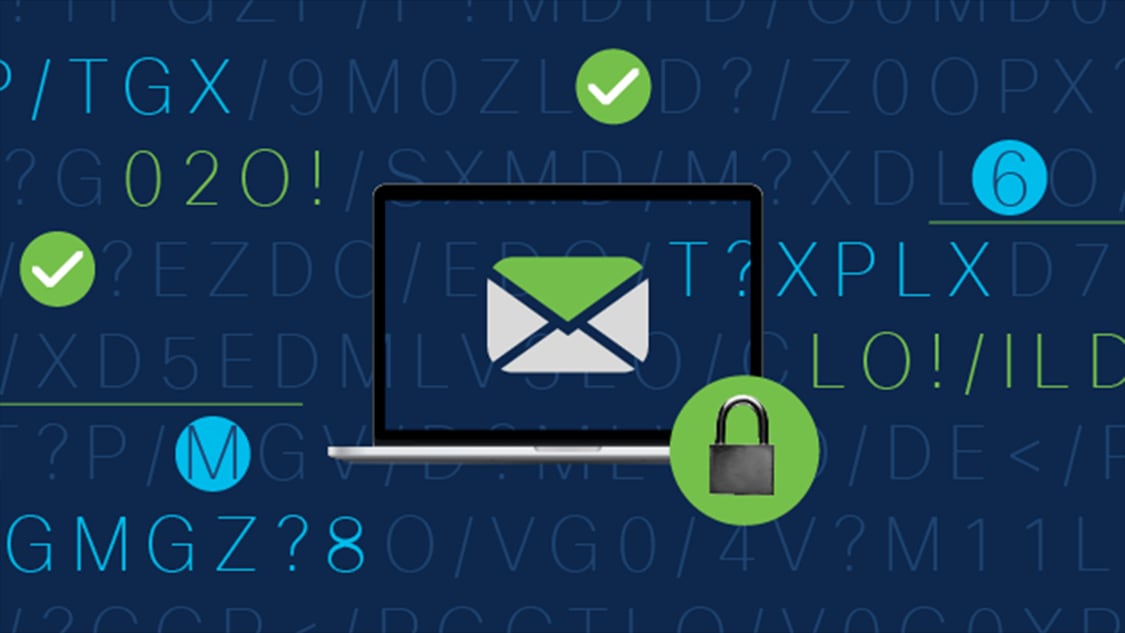Why is email encryption necessary?
It has become best practice in businesses to encrypt all email—not only those with sensitive information included. This prevents hackers from gaining access to any part of your email (for example attachments and URLs) or finding a way to take over your account. Encryption ideally covers the full journey of the email. Messages should be encrypted before they are sent, which ensures that they are protected and unreadable to hackers from the outset. After delivery, an archived email is safest if it is encrypted. If your credentials are ever compromised, a hacker won't be able to gain access to your actual messages.
How does email encryption work?
Email encryption, or converting data into a code, prohibits the contents of the email from being seen by any unauthorized recipients. The email encryption process uses keys to lock and unlock the code that result from the encryption. Public-key cryptography allows the sender to encrypt the email when it is sent. A private key is used by the receiver to decode the encryption upon receipt.
